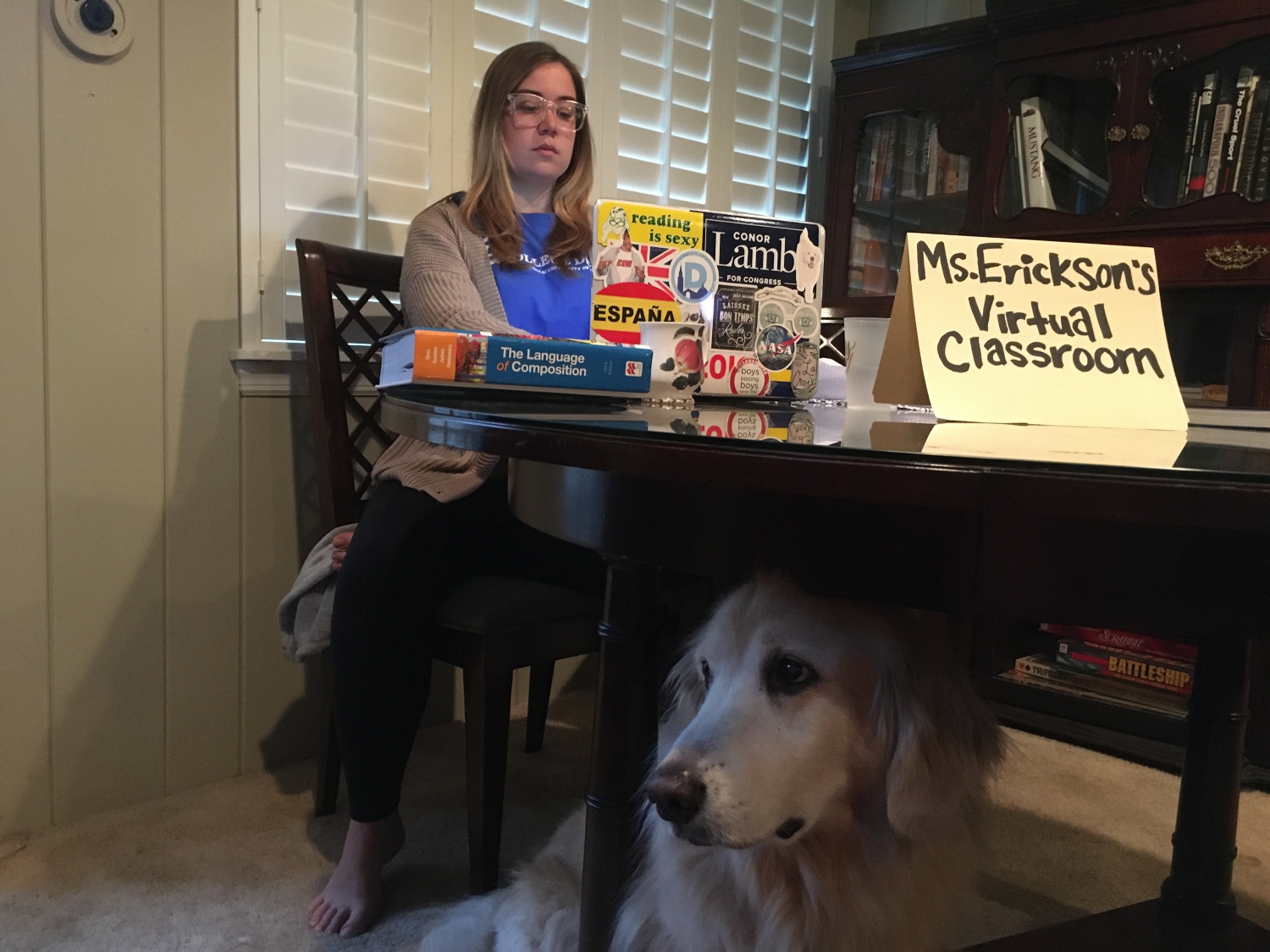

Education Majors Adapt to Online Student Teaching
Catholic University education majors have received a lesson in adaptability this semester as their student teaching placements have moved to virtual classrooms, due to the social distancing guidelines which have closed schools in the Washington, D.C., metro area.
Senior Marie Erickson, an English secondary education major from Pittsburgh, is currently teaching 11th grade AP language and composition at D.C.’s Bell Multicultural High School. For her, teaching online has meant delivering live instruction via Zoom, checking in on students and attending virtual faculty meetings.
Though the shift to virtual learning has been an adjustment, Erickson says she has enjoyed learning how to better support her students in the online setting. She has also found inspiration in the “endless creativity and dedication of the public school educators with whom I work. This has been an amazing learning experience for all of us together.”
“Not being able to just see how students are progressing through work or how they seem to be doing that day is difficult. You’re not sure if you’re supporting them virtually as well as you could be in-person.”
– Gabrielle Tomasura
Senior English secondary education major
As part of their education program, Catholic University students are required to accumulate field experiences including classroom observations, tutoring opportunities, and practicum experiences. During their senior year, students typically spend an entire semester teaching in a local classroom, where they can gain real world knowledge and learn from seasoned educators.
Senior Gabrielle Tomasura, an English secondary education major who teaches at Capital City Public Charter High School, says the biggest change for her with the shift to online classes was losing the ability to get to know students in person.
“My favorite part of every in-person school day was just getting to interact with my students between classes and before the bell would ring, getting to talk to them about their days, their extracurriculars, and their lives,” she says. “Not being able to just see how students are progressing through work or how they seem to be doing that day is difficult. You’re not sure if you’re supporting them virtually as well as you could be in-person.”
Though the experience has been humbling, Tomasura says she has a new pride and respect for her students and all they have been accomplishing.
“I’ve been telling my students that if they can do this, then they can get through anything,” she says. “Seeing the perseverance, the determination, the love, and the hope that my students and fellow staff are showing during this time are reminders that will help to inspire me in the future when I get discouraged or face unprecedented obstacles.”
Senior Irene Wilson, an English secondary education major, has been teaching at Gonzaga College High School this semester. After the school moved entirely online in March, she had to learn how to teach on Zoom and use online materials in a new way. Looking forward, she thinks this experience might help her to become a more patient and confident educator.
“Being there for my students during this unique student-teaching experience has taught me so much about journeying alongside people who are confused and overwhelmed while you are trying to process this all at the same time,” she says. “This experience has truly taught, and brought me, more awareness into who I am and into who I desire to be for each one of my future students, and that is something I will always be grateful for.”
Senior Dan Lawrey, a math secondary education major, also believes this experience will help him become a better teacher. Lawrey, who has spent the semester teaching at Benjamin Banneker High School, has been conducting his classes in precalculus, probability and statistics, and AP calculus online.
“I think it is amazing that I have been able to almost seamlessly continue my student-teaching experience in the midst of the pandemic,” he says. “However, I miss being in school every day to see my students.”
Though his time teaching this semester was not what he expected, Lawrey said he is grateful to have learned skills on “the cutting edge of education.”
“Online learning is nothing to be afraid of,” he says. “Learning should not be thought of as something that can only take place within the confines of a school building. Learning can take place anywhere we allow it.”
— Katie Bahr, Assistant Director of Media Relations and Communications. Bahr can be reached at bahr@cua.edu.